The autumn issue of Index takes as its central theme the FIFA World Cup that will take place in Qatar in November and December 2022. A country where human rights are constantly under threat, Qatar is under the spotlight and many are calling for a...


The autumn issue of Index takes as its central theme the FIFA World Cup that will take place in Qatar in November and December 2022. A country where human rights are constantly under threat, Qatar is under the spotlight and many are calling for a...
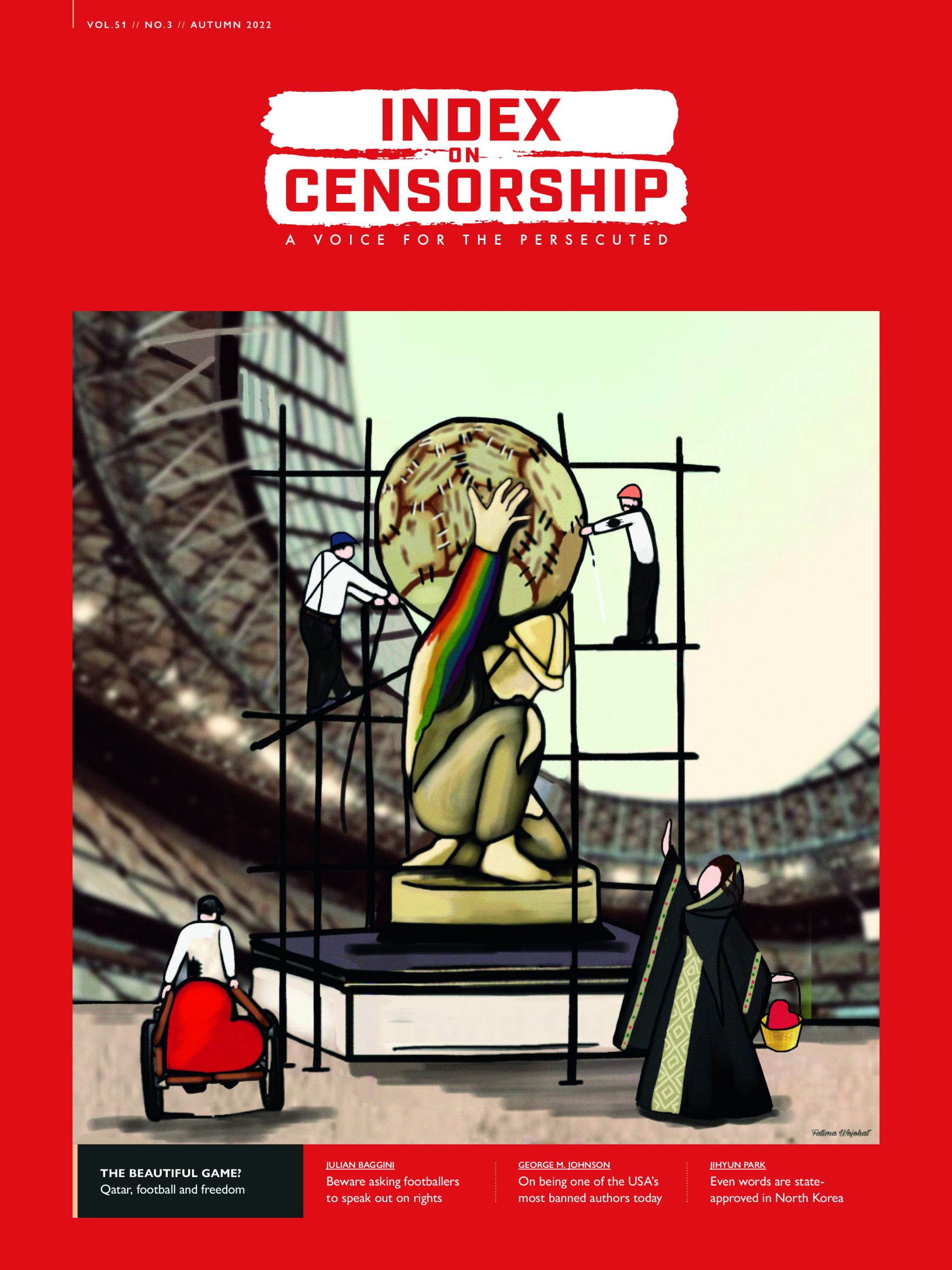
Volume 51.03 Autumn 2022

On 12 August 2022, Salman Rushdie, the author of the book The Satanic Verses, was attacked as he prepared to give a lecture at the Chautauqua Institution, an arts and education centre in New York state.
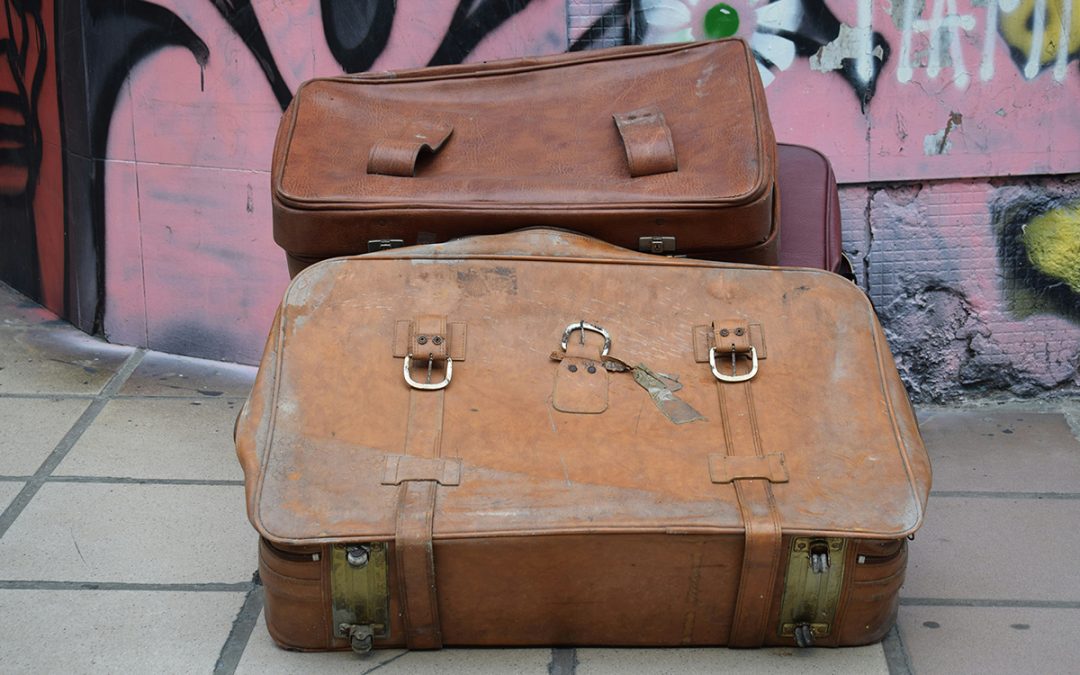
A celebrated Croatian journalist writes an exclusive essay on what a refugee should pack in their suitcase and how they must be prepared to learn a whole new language

Pride started as a way to give voice to the silenced, but it lost its way. Ahead of its 50th anniversary, a new protest movement has emerged
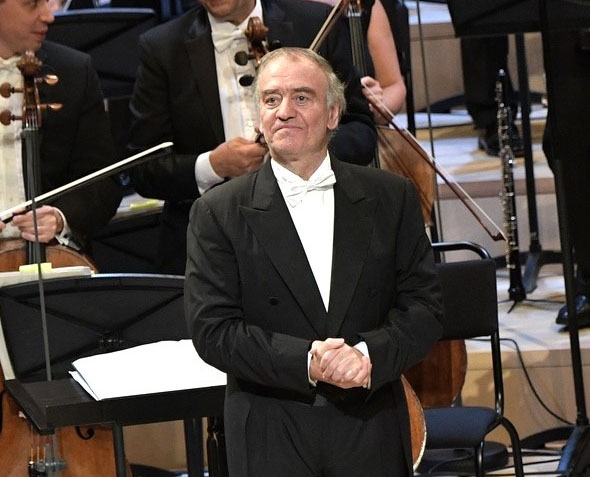
Putin has used Russian culture to further his aims. Promoting it today risks furthering his agenda, writes Marina Pesenti
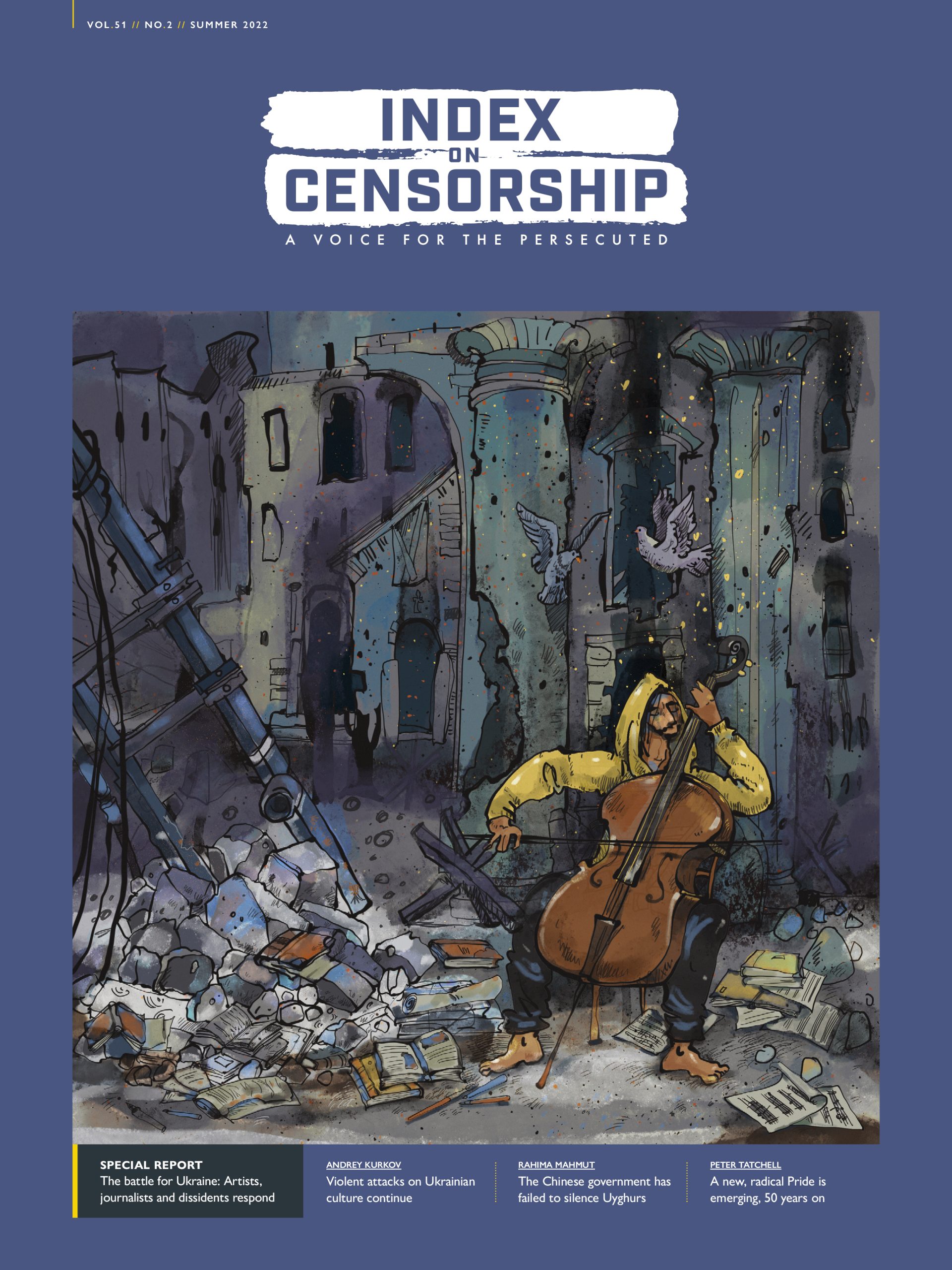
The summer issue of Index magazine concentrated its efforts on the developing situation between Russia and Ukraine and consequential effects around Europe and the world. We decided to give voice to journalists, artists and dissidents who chose to...

Volume 51.02 Summer 2022
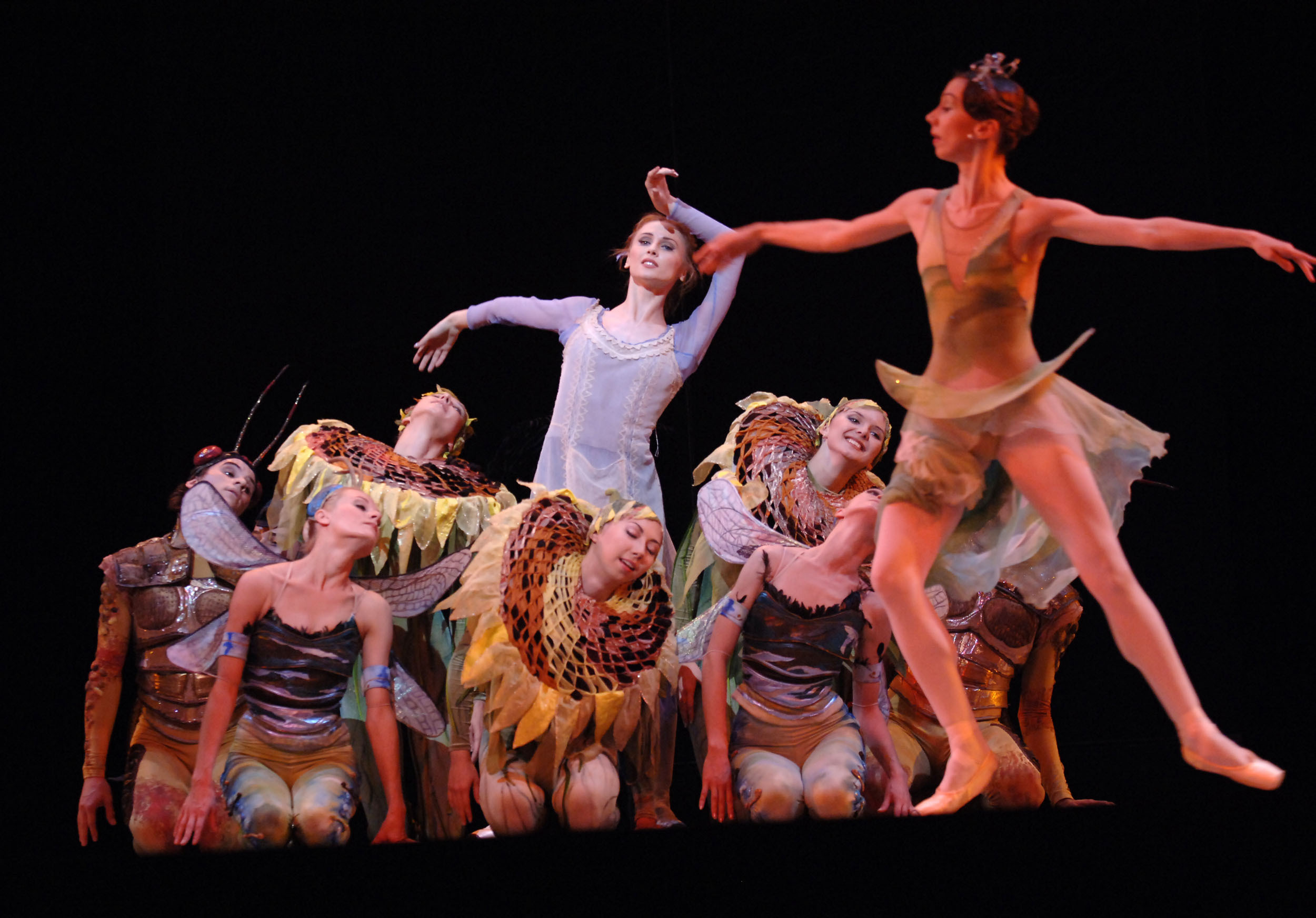
Artists must unite in their opposition to authoritarian regimes and there should be an end to the blanket boycott of Russian culture
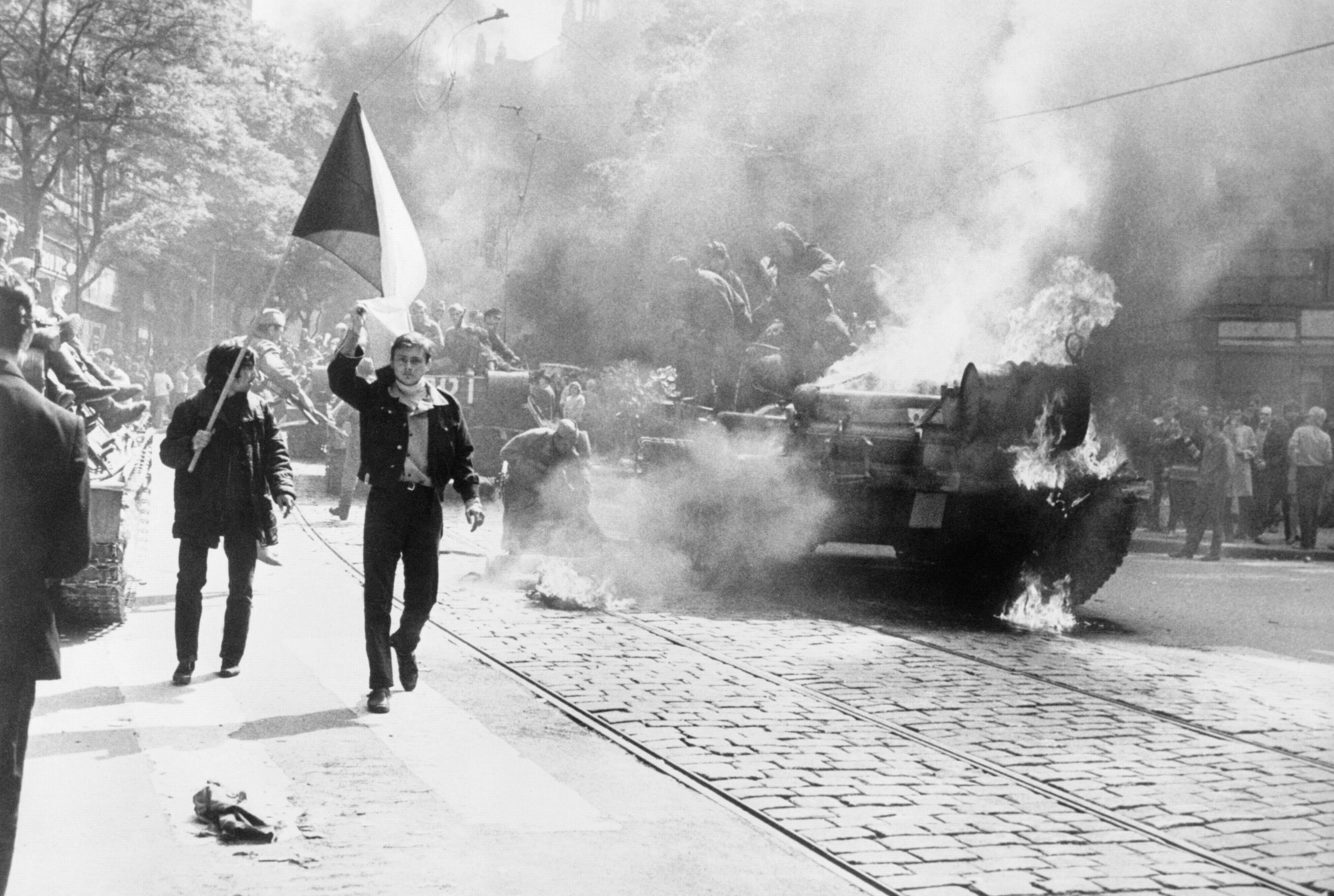
Index on Censorship started at the front line of an ideological war
A quarterly journal set up in 1972, Index on Censorship magazine has published oppressed writers and refused to be silenced across hundreds of issues.
The brainchild of the poet Stephen Spender, and translator Michael Scammell, the magazine’s very first issue included a never-before-published poem, written while serving a sentence in a labour camp, by the Soviet dissident Aleksandr Solzhenitsyn, who went on to win a Nobel prize later that year.
The magazine continued to be a thorn in the side of Soviet censors, but its scope was far wider. From the beginning, Index declared its mission to stand up for free expression as a fundamental human right for people everywhere – it was particularly vocal in its coverage of the oppressive military regimes of southern Europe and Latin America but was also clear that freedom of expression was not only a problem in faraway dictatorships. The winter 1979 issue, for example, reported on a controversy in the United States in which the Public Broadcasting Service had heavily edited a documentary about racism in Britain and then gone to court attempting to prevent screenings of the original version. Learn more.